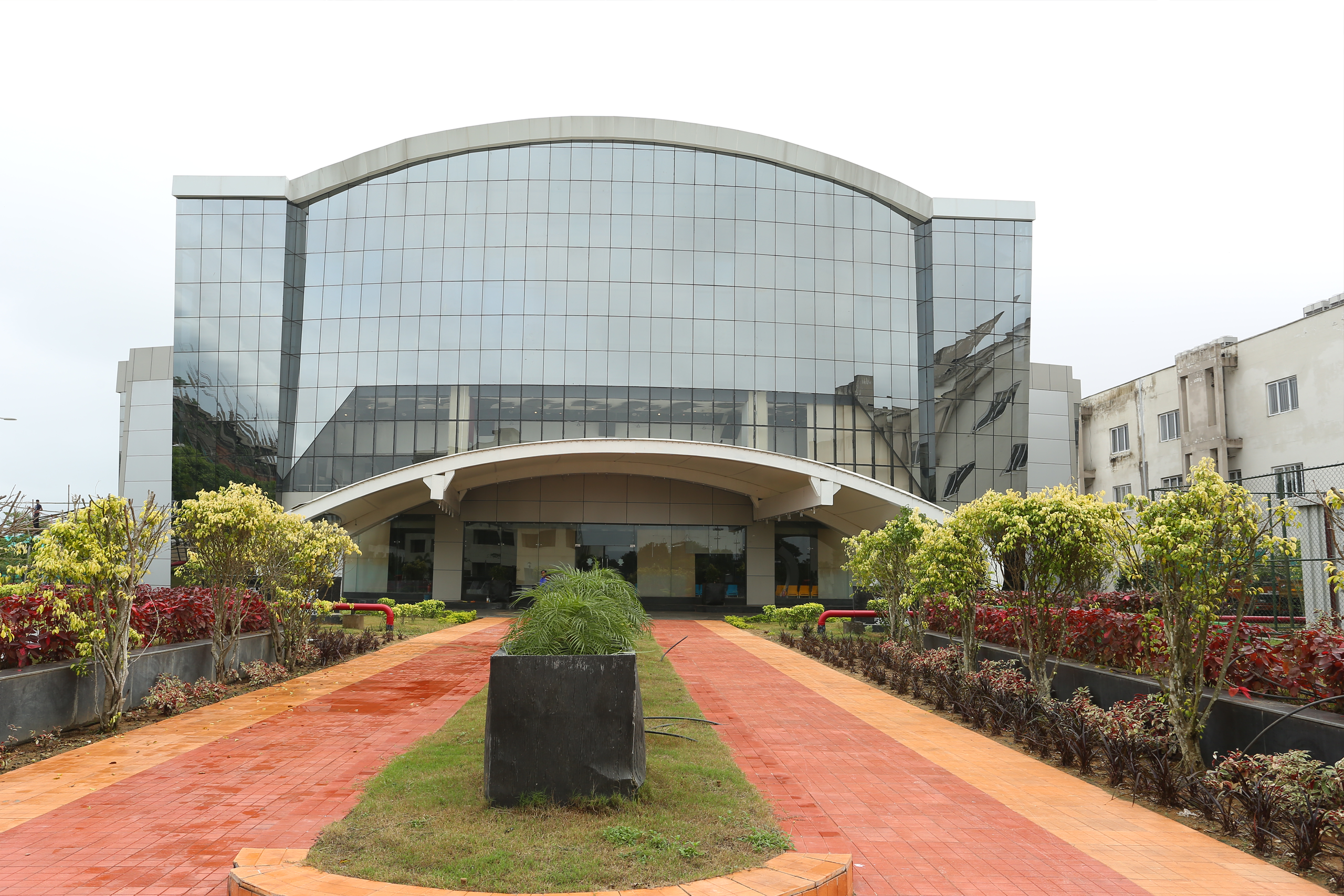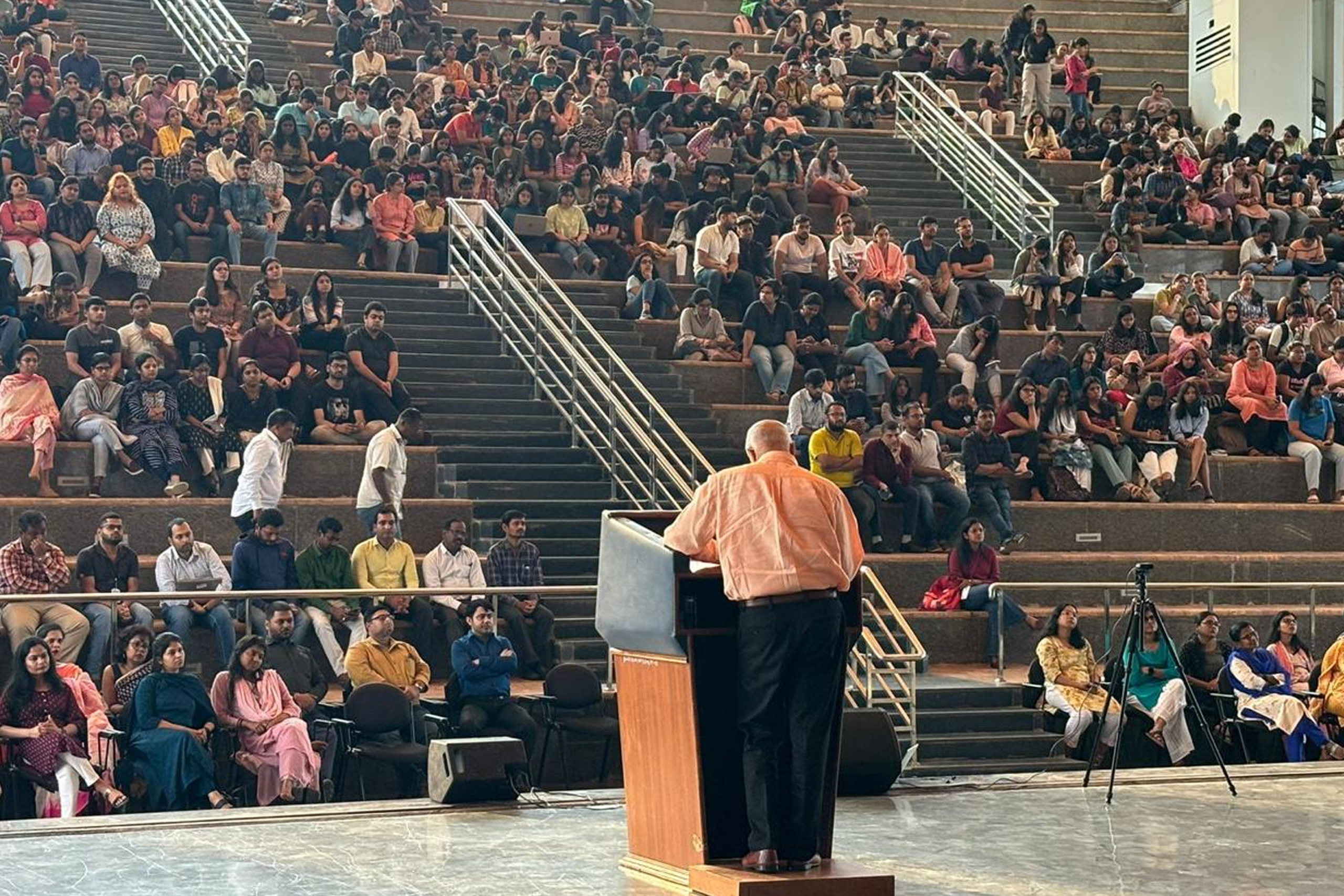-
Home
Key Links
- About us
- Academic Programme
- Admissions
- Research
- People
-
Students
- Explore Students
- Student Council
- Student Committee And Societies
- Legal Services Committee
- Unnat Bharat Abhiyan
- The Moot Society
- Mentorship
- Placement
- Internship Committee
- Achievements
- Scholarship Schemes
- Examinations
- Anti-Ragging Policy
- Student Support Platform
- Students Grievances Redressal Committee(S) (SGRC)
- Internal Complaints Committee(ICC)
- Alumni
- Student Testimonial
-
Facilities
- Explore Facilities
- Library
- Hostel
- Sports
- Health Centre
- Cultural
-
NAAC
- Explore NAAC
- SSR
- AQAR
- IQAC
- Photographs
Guest Lecture & Concluding Ceremony of Triple Credit Certificate Course on ‘Maritime Law and Practice’
Report on Guest Lecture Session and Concluding Ceremony
Date: 4/2/2025
Time: 5pm
Venue: Seminar Hall
The session commenced with the Mentor of the Centre for Maritime Law, Ms. Samridhi Prakash, delivering the opening speech, warmly welcoming the esteemed guests, centre directors, members of the Centre, and the audience gathered in the Seminar Hall. She emphasized the significance of maritime law in today’s dynamic shipping industry and the importance of continued learning through such insightful sessions.
Following the opening address, Captain Madhu Vaddakepat, Director at N1 Commercial Management Pte. and an esteemed Member of the Singapore Chamber of Arbitration, delivered an engaging lecture on the evolving landscape of the maritime industry. He provided a comprehensive analysis of key industry developments, focusing on regulatory changes, market risks, and contractual adaptations for shipowners. He highlighted the growing influence of Environmental, Social, and Governance (ESG) factors, as well as Corporate Social Responsibility (CSR), on shipping finance. Investors are now prioritizing sustainability, making ESG compliance a crucial factor in securing financial backing. Additionally, charterers are increasingly incorporating ESG-related clauses into agreements, reinforcing the necessity of responsible and sustainable business practices.
Captain Madhu then steered the discussion toward the transition to green fuels, raising thought-provoking questions on how bunker payments might evolve in the coming decade. While Liquefied Natural Gas (LNG) and Liquefied Petroleum Gas (LPG) are gaining traction as viable alternatives, the financial challenges surrounding these fuels remain significant. He explained that most green fuel projects are structured on a non-recourse financing model, requiring enforceable long-term contracts—often spanning 15 to 20 years—to secure funding. However, uncertainty remains about which stakeholders will bear the long-term costs and how the industry will adapt to these structural shifts.
He further elaborated on the implications of the Carbon Intensity Indicator (CII) on ship revenue models, emphasizing that the maritime sector is currently undergoing a dual transformation—digitalization and decarbonization. While alternative fuels and technological advancements present opportunities, the real challenge lies in determining which solutions will prevail. Efficient cargo management and digital documentation are no longer optional but rather essential components of a successful operational framework. As regulatory compliance becomes more stringent, shipowners must embrace innovative strategies to ensure profitability while adhering to sustainability goals.
Concluding his session, Captain Madhu posed a critical question: Is there a practical and financially sustainable solution that balances environmental compliance, operational efficiency, and economic viability? He underscored that the future of the shipping industry hinges on adaptability, strategic collaboration, and a willingness to embrace transformative innovations.
With the conclusion of the guest lecture, the concluding ceremony of the Centre for Maritime Law’s Triple Credit Course on Maritime Law and Practice commenced. The Coordinator of the Centre, Mr. Swayam Sambhab Mohanty, announced the names of the top two candidates who had achieved the highest scores in the Assessment Test held on 2nd February 2025. The top performers, Kajol Nayak and Vedika Nayak, both pursuing a BBA LLB degree, were awarded Certificates of Completion by Captain Madhu. In recognition of their outstanding performance, they were also offered prestigious Internship Opportunities at reputed Maritime Law Firms, further encouraging excellence in the field.
The event concluded with a vote of thanks delivered by Ms. Samridhi Prakash, Mentor of the Centre for Maritime Law, alongside Ms. Stuti Pani, a dedicated member of the Centre. To commemorate the occasion, Captain Madhu was presented with a memento by Mr. Akash Kumar, Director of the Centre for Maritime Law, as a token of appreciation for his valuable insights. Finally, marking the end of both the guest lecture and the closing ceremony, a group picture was taken, capturing the esteemed guests, members of the Centre for Maritime Law, and the attendees present at the venue.
The session successfully reinforced the importance of maritime law education, industry adaptation, and collaboration, leaving attendees with valuable insights into the evolving future of the shipping sector.
Success !

Thank you for sharing your feedback.
Our team will get back to you at the earliest




